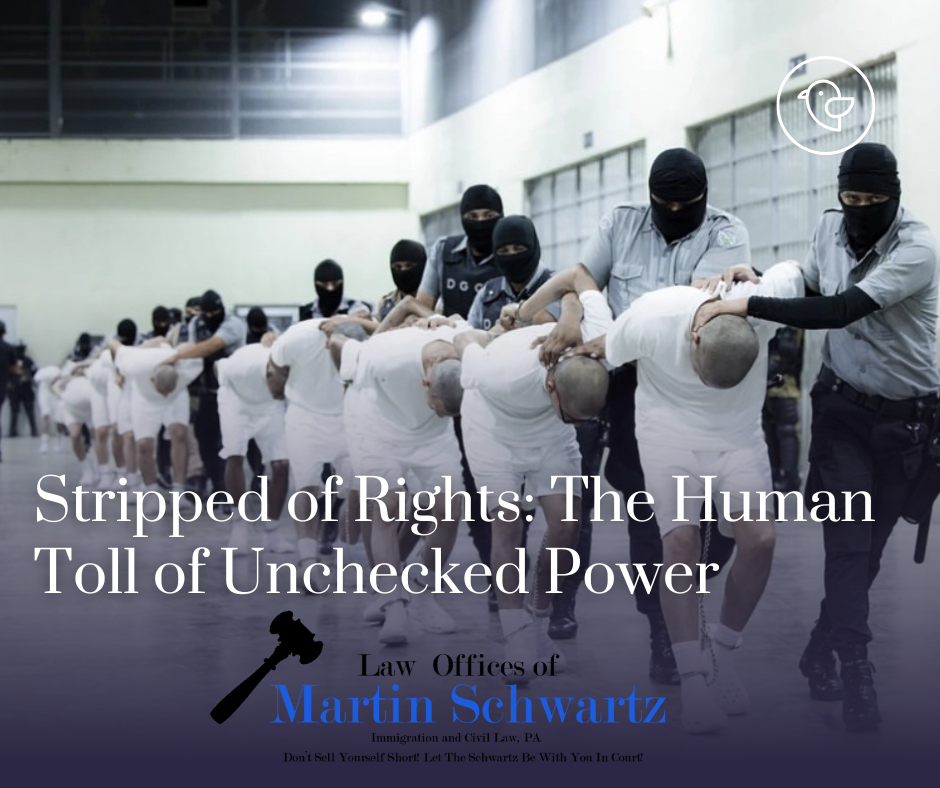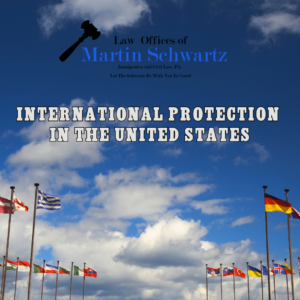
In recent times, our nation has witnessed a troubling shift in immigration enforcement, one that
not only undermines the foundational principles of due process but also threatens the very fabric
of our democracy. The Trump administration’s recent actions concerning mass deportations
have raised alarm among legal experts, human rights advocates, and concerned citizens alike.
Stripping Away Due Process
Traditionally, individuals facing deportation in the United States are entitled to certain legal
protections, including court hearings and the assignment of an Alien Registration Number
(A-number). These procedures ensure that each case is evaluated fairly and that individuals
have the opportunity to present their circumstances before an impartial judge. However, recent
reports indicate a stark departure from these norms.
The administration has initiated rapid deportations without granting court hearings or assigning
A-numbers to the individuals involved. This expedited process not only denies the fundamental
right to due process but also raises critical questions about how these individuals are being
tracked and processed within the system. Without proper documentation and oversight, there is
a heightened risk of errors, wrongful deportations, and human rights violations.
Misusing a Centuries-Old Law
To justify these actions, the administration has invoked the Alien Enemies Act of 1798—an
archaic law enacted during a time of impending conflict with France. This law grants the
president the authority to detain and deport non-citizens from hostile nations during times of
declared war.
But are we at war? No.
The United States is not currently engaged in an armed conflict with Venezuela or any of the
countries from which people are being deported. Therefore, the application of this law in the
current context is legally questionable.
Even more troubling is the claim that these deportations are targeting gang members. How are
they determining that these individuals are gang members? Is there solid proof, or are
these individuals being falsely accused to justify their removal? Are innocent people being
swept up in mass deportations based on unfounded claims?
The Law Offices of Martin Schwartz assert that this action bypasses established immigration
laws and protections, creating a dangerous precedent for the unchecked use of executive
power. If a president can use a wartime law during peacetime to justify mass deportations, what
else could they misuse in the future?
Constitutional Violations
The Fifth Amendment to the United States Constitution states that no person shall be “deprived
of life, liberty, or property, without due process of law.” This clause ensures that all individuals,
regardless of their citizenship status, are entitled to fair procedures before being deprived of
fundamental rights.
By conducting deportations without court hearings or proper documentation, the administration
is arguably violating this constitutional guarantee. The lack of due process not only undermines
individual rights but also erodes the rule of law that underpins our democratic society.
The Human Cost
Beyond the legal implications, the human toll of these actions is devastating. Families are torn
apart, individuals are deported to countries where they may face persecution or violence, and
communities live in constant fear of sudden and unjust removal. The lack of transparency and
accountability in the deportation process only deepens the suffering of those affected.
What happens to the people who are deported without being assigned an A-number? How is
the government keeping track of them? Where do they go, and who ensures they are not being
sent to dangerous situations? How will their families ever find them? What if lives are lost and
no one can locate them? The rushed and reckless nature of this policy raises more questions
than answers. This is not just a bureaucratic failure—it is inhumane.
President Nayib Bukele of El Salvador posted a three-minute video on social media showing
men in handcuffs being led off a plane in the dead of night and marched directly into prison. The
footage also captures prison officials forcibly shaving the prisoners’ heads. This chilling display
raises grave concerns about the fate of those being deported without due process. Are these
individuals being wrongfully labeled as criminals? What protections do they have against unjust
imprisonment or mistreatment? Without proper tracking, legal representation, or accountability,
how many innocent lives are being thrown into danger with no way back? This is not just a
failure of policy—it is a blatant disregard for human rights.
A Call to Uphold Justice
As citizens, lawyers, judges, and those sworn to uphold the law, we cannot sit by and watch our
government erode the rights of due process and fairness. Those in positions of
power—attorneys, judges, law enforcement officials—must step in, fulfill their duty, and be vocal
in the face of injustice. It is not enough to silently disapprove; action must be taken to ensure
that the law is applied rightfully, and not manipulated for political convenience.
We must demand:
● Due process for all individuals facing deportation.
● An end to the misuse of the Alien Enemies Act during peacetime.
● Transparency in how deportation decisions are made.
● Accountability for false accusations and wrongful deportations.
The erosion of due process in immigration enforcement harms not only those directly affected
but also weakens the foundational principles of our democracy. If we allow this misuse of
power to continue, who will be targeted next?
Understanding the Alien Enemies Act of 1798
To fully grasp the gravity of the current situation, it’s essential to understand the Alien Enemies
Act of 1798. This law was designed to authorize the president to detain and deport non-citizens
from hostile nations only during wartime. Its intent was to protect the nation from internal
threats posed by enemy nationals.
However, its application has been rare and confined to actual wars, such as World War II. The
Trump administration’s use of this law in peacetime is an extreme and legally questionable
overreach. The law was never intended to be used as a loophole for mass deportations, yet that
is exactly what is happening.
Conclusion
The United States has long prided itself on being a nation of laws and due process. But when
those laws are twisted to fit a political agenda, and when fundamental rights are disregarded,
we all should be alarmed. Deportations without court hearings, false accusations of gang
affiliation, and the misuse of wartime laws in times of peace—these are not the actions of a just
and fair government.
We must hold our leaders accountable and demand that justice, transparency, and fairness be
restored. If we don’t, who will be next?
If you, a friend, or a family member needs assistance please reach out to Law Offices of Martin Schwartz 813-751-6777. We can help in any state, and any country as long as you have someone within the United States to assist in the process.
Blog Writer
Maryleslie Javier





